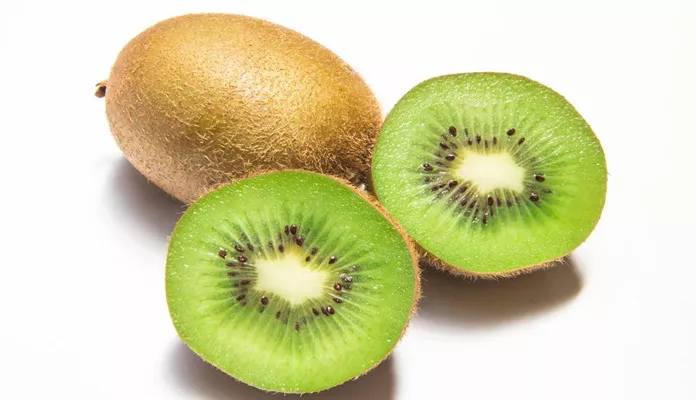Angina pectoris is a type of chest pain caused by reduced blood flow to the heart. This condition often results from coronary artery disease, where the arteries supplying blood to the heart become narrowed or blocked. Angina can manifest as a feeling of pressure, squeezing, or pain in the chest. It may also radiate to the shoulders, neck, arms, or jaw.
While angina can be managed through medications and lifestyle changes, diet plays a crucial role in heart health.
Incorporating specific fruits into your diet can help manage symptoms and improve overall cardiovascular health. Fruits are rich in vitamins, minerals, antioxidants, and fiber, which can contribute to better heart health. This article discusses the best fruits for treating angina pectoris and how they can benefit your heart.
see also: How Do You Get IsChemic Heart Disease?
Why Fruits Matter for Heart Health
Fruits are an essential part of a balanced diet, especially for individuals with heart conditions. They provide nutrients that help maintain healthy blood vessels, reduce inflammation, and lower cholesterol levels. Here are some reasons why fruits are important for heart health:
Rich in Antioxidants: Fruits contain antioxidants, which protect the body from oxidative stress. Oxidative stress can damage blood vessels and lead to heart disease.
High in Fiber: Many fruits are high in dietary fiber. Fiber helps lower cholesterol levels and improves heart health.
Low in Calories: Most fruits are low in calories, making them an ideal choice for those trying to maintain a healthy weight.
Hydration: Fruits have high water content, which helps keep the body hydrated. Proper hydration is vital for overall health, including heart function.
Nutrient Density: Fruits provide essential vitamins and minerals, including vitamin C, potassium, and magnesium, which are important for heart health.
Best Fruits for Treating Angina Pectoris
Here are some of the best fruits for managing angina pectoris, along with their specific health benefits:
1. Berries
Examples: Blueberries, strawberries, raspberries, and blackberries.
Berries are packed with antioxidants, particularly flavonoids. Flavonoids help improve blood flow and lower blood pressure.
Studies have shown that regular consumption of berries can reduce the risk of heart disease. Berries are also high in fiber, which aids in lowering cholesterol levels.
2. Apples
Apples are an excellent source of dietary fiber and vitamin C. They contain antioxidants like quercetin, which may help lower blood pressure and reduce inflammation. Eating apples regularly can help improve heart health and lower the risk of heart disease.
3. Oranges
Oranges are rich in vitamin C and potassium. They contain flavonoids, which can help improve heart health. The potassium in oranges helps regulate blood pressure, and the fiber helps lower cholesterol levels.
4. Bananas
Bananas are an excellent source of potassium, which is crucial for heart health. Potassium helps maintain healthy blood pressure levels by counteracting the effects of sodium. Bananas also provide vitamin B6 and vitamin C, both of which support cardiovascular health.
5. Grapes
Grapes are rich in antioxidants, particularly resveratrol. Resveratrol has been linked to improved heart health by reducing inflammation and protecting blood vessels. Grapes also contain potassium and fiber, making them a heart-healthy choice.
6. Kiwis
Kiwis are high in vitamin C, vitamin K, and potassium. They also contain dietary fiber and antioxidants. Studies have shown that kiwis can help lower blood pressure and improve cholesterol levels, making them beneficial for heart health.
7. Pomegranates
Pomegranates are packed with antioxidants, particularly punicalagins and anthocyanins. These compounds help reduce inflammation and improve blood flow. Research suggests that pomegranate juice may help lower blood pressure and reduce the risk of heart disease.
8. Avocados
While technically a fruit, avocados are rich in healthy fats, specifically monounsaturated fats. These fats can help lower bad cholesterol (LDL) levels and increase good cholesterol (HDL) levels. Avocados also provide potassium, which supports heart health.
9. Papayas
Papayas are a great source of vitamin C and beta-carotene. They contain antioxidants that can help reduce inflammation and improve heart health. The fiber in papayas also aids in lowering cholesterol levels.
10. Watermelon
Watermelon is hydrating and low in calories. It contains citrulline, an amino acid that may help improve blood flow.
Watermelon is also a good source of vitamins A and C, which are important for overall health.
How to Incorporate These Fruits into Your Diet
Incorporating heart-healthy fruits into your daily diet can be easy and enjoyable. Here are some tips on how to do so:
Smoothies: Blend your favorite fruits into a smoothie. Add some spinach or kale for an extra nutrient boost.
Salads: Add fruits like berries, oranges, or apples to salads. They can enhance flavor and add a sweet touch.
Snacks: Keep fresh fruits on hand for quick and healthy snacks. Pair them with nuts or yogurt for added protein.
Desserts: Use fruits as a base for desserts. Try fruit salads, baked apples, or frozen fruit pops.
Breakfast: Top your oatmeal or yogurt with fresh fruits. They can add natural sweetness and flavor.
Cooking: Incorporate fruits into savory dishes. Pineapple, for example, works well in stir-fries or grilled chicken dishes.
Conclusion
Fruits play a vital role in managing angina pectoris and promoting overall heart health. By incorporating a variety of fruits into your diet, you can take proactive steps toward reducing symptoms and improving cardiovascular well-being. Berries, apples, oranges, bananas, grapes, kiwis, pomegranates, avocados, papayas, and watermelon are all excellent choices.
They are rich in antioxidants, vitamins, and minerals that support heart health. However, it is important to remember that a balanced diet, regular exercise, and proper medical care are essential for managing angina pectoris.
Related topics:


